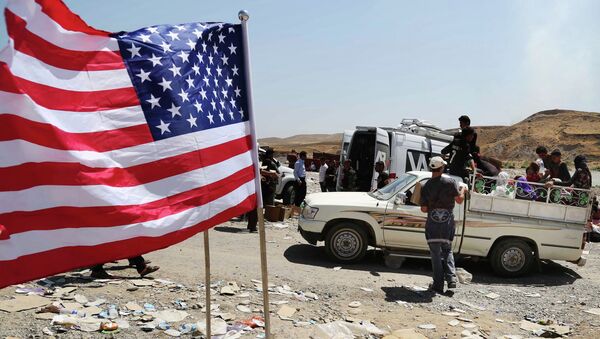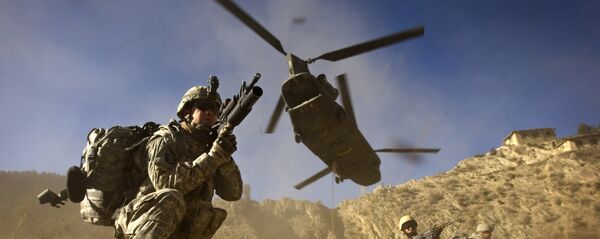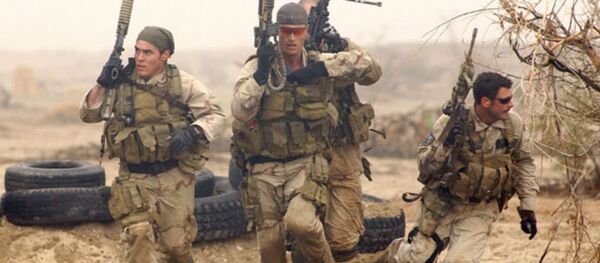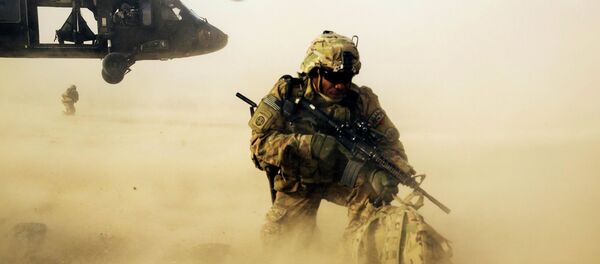"[President Obama] pushed to have complete US withdrawal [from Iraq] by 2011 because it’s one of the main promises that he made," Jarrar, an Iraqi-American journalist tells Loud & Clear.
"But now we’re going back to an era where the US is not only sending weapons and arming proxy wars in Iraq and other places in the region, but the US is back on the ground, with thousands of troops in Iraq and the rest of the region."
Far from ending the war, Obama will leave office having continued a pattern of US military intervention in Iraq that began in 1990. While Washington insists that there are no more US "boots on the ground," the death of a US Navy Seal on Tuesday indicates otherwise.
"The words that are coming out of the politicians mouths…they’re saying one to the press and to the American people and to soldiers’ families, but then the reality on the ground is something completely different," says Prysner, a veteran of the Iraq War.
"While they’re saying this is an advise-and-assist mission, something completely different is happening, and that’s one way that US soldiers are going to continue to die, by being sent into direct combat…"
While Washington insists that its Iraqi operations are necessary to combat the violent extremist group Daesh, also known as IS/Islamic State, the end may not justify the means.
"ISIS is definitely a scary and violent and evil group, but they are not the only scary and violent and evil group," Jarrar says. "There are many other groups who are as sectarian and violent and destructive as ISIS, and those other groups are actually affiliated with the United States."
Jarrar also discusses America’s role in inflaming sectarian conflict.
"The divisions were definitely introduced in 2003, and the damage that has been caused since those divisions were introduced is really enormous," he says. "It will take a lot of work; a lot of work and effort to reverse and go back to a point where sectarian divisions are not primary to people’s identity."
"One of the first steps towards going back to that point is ending foreign intervention."
With the upcoming presidential election in the United States, Prysner doesn’t hold out much hope that a new administration will change things.
"With [Donald] Trump I think we don’t know what to expect, but with Hillary Clinton, she has a long track record with this, one of the big supporters of the invasion of Iraq, praising George W. Bush," he says.
"And many people don’t know but [she was also] one of the main opponents to withdrawing troops from Iraq when she was the Secretary of State in the Obama administration. [She was] known as the one pushing hardest to leave troops there indefinitely."





